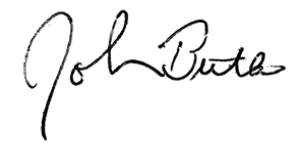When we see the terms “searching” and “gold” together we don’t first think about Google.
The perennial search for gold is associated with myth and legend, such as that of Jason and the Argonauts. Or of ancient Kings Croesus and Midas. Sometimes it is the drama of history, such as the great gold discoveries and rushes in South America, California, the Canadian Yukon and South Africa.
A treasure hunt is always a potential plot for a novel, or film, and gold is often what is sought. Truth can also be stranger than fiction. Just a couple of weeks ago there was a huge gold heist at Toronto Pearson airport. Perhaps that will find its way into film before long.
But would you also believe, the Google search for “How to buy gold” has reached a record.
The world’s newest search technology – the internet – is being used to locate and acquire what is, alongside silver, the world’s oldest known money.
I suppose one hardly need ask why. Inflation remains historically high across much of the world, eroding the value of cash and investments. Central banks are talking about introducing new, purely digital currencies (CBDCs). Completely intangible, it’s not clear if they will hold their value any better than the paper they’ve printed through the years. They might well do worse (you can learn more about those potential dangers to your wealth – and how to protect yourself – here, in your complimentary report).
Meanwhile, at time of writing, another major US bank has faced a run on deposits and regulators have arranged a quick “shotgun” takeover by JP Morgan. With memories of 2008 still in many investors’ minds, it is understandable that fears of a general financial crisis are spreading.
To add to the uncertainty, there is now frequent talk of “de-dollarisation” in some circles. While members of the so-called BRICS countries have occasionally mentioned the possibility of reducing use of the dollar in bilateral trade for years, they have recently turned up the volume on such rhetoric.
The president of the European Central Bank, Christine Lagarde, recently spoke about the above in a major speech, suggesting that the euro’s adoption was in some ways an early move towards a reduction in the dollar’s dominant reserve currency role. She went on to point out how uncertainty over the future of the international system is clearly on the increase. Something my colleague Nick looked at further here.
Gold thus has good reason to be trading near all-time highs. But how high is it really? As with assets generally, the price of gold should reflect its perceived value vis-à-vis other assets: stocks, bonds, property. And in that regard, gold doesn’t look expensive. Indeed, one could argue it looks cheap.
In inflation-adjusted terms – assuming the way inflation is measured is accurate – gold is far from as expensive today as it was in the late 1970s. Yet back then, national debt burdens were far lower. Average growth rates were higher. Demographics were more favourable. De-dollarisation wasn’t a hot topic.
Nor was there a war in Europe. The Cold War had indeed entered an era of détente. The world seemed, for a time at least, a less risky place.
In contrast to gold, notwithstanding a rough ride over the past year, stock market valuations remain historically highly elevated. Price-to-earnings (P/E) ratios and other popular metrics might not be as high as they were, briefly, in 2000 or 2007, but they’re still well above long-term averages.
Bond prices have come off sharply as interest rates have risen. But here, too, in a long-run comparison, bond yields, whether viewed in nominal or real, inflation-adjusted terms, are also low in a historical comparison.
Property values relative to incomes are also elevated. Rising mortgage rates might begin to correct that imbalance in future but as it stands today, housing is expensive.
So what gives? The problem with a financial analyst claiming that something is a “screaming buy” is that it begs the question: why is whatever it is so cheap in the first place?
The best explanation I can think of for gold’s chronic, relative undervaluation vs stocks, bonds and property is a consequence of a prolonged, subtle assault on financial freedom. Gold is systematically discriminated against by the international monetary, banking and financial regulatory system.
You see, the game between official, legal tender money and alternative stores of value such as gold, or cryptocurrency for that matter, is not played on a level playing field. Far from it, as I’ll explain in Part II tomorrow.
Until next time,

John Butler
Investment Director, Fortune & Freedom



